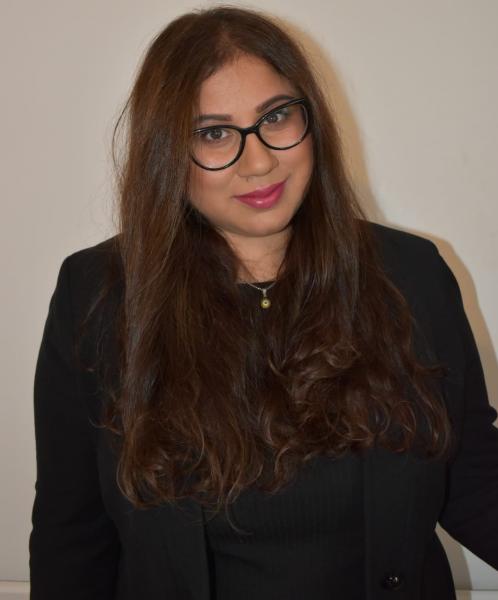
This week, International Women’s Day celebrated the social, economic, cultural, and political achievements of women across the globe. The theme was #BreakTheBias which calls for a more diverse and inclusive environment for women.
The campaign originated in 1911 when women didn’t have equal rights to men. Now more women are trailblazers using their talent, creativity, power, uniqueness, and influence, to create positive change and shape the modern world.
Some noteworthy UK trailblazers (regretfully, I couldn’t include them all) are:
· Michaela Coel who wrote and starred in hit drama, I May Destroy You. She made history at the Emmy Awards for becoming the first Black woman to win the ‘Outstanding Writing for a Limited Series, Movie or Dramatic Special’ category.
· Nadiya Hussain, who won The Great British Bake Off. She was recognised as one the most influential people in Britain. Broadsheet columnist, Yasmin Alibhai Brown said that Nadiya, a second generation British-Bangladeshi, had done more for race relations in the UK than any politician.
· Closer to home, and one that is personal to me, is my local councillor Paulette Hamilton who recently became Birmingham’s first Black MP. Paulette worked as an NHS Nurse for 25 years before moving to local politics. During the coronavirus pandemic she was Birmingham City Council’s Cabinet Member for Health and Social Care, as well as a national speaker on Covid-19 related matters.
Although these women are indicative of the progress that has been made across a broad spectrum of careers, research reveals that gender inequality is very real and continues to place women at a disadvantage in the workplace, as well as their homes.
The PwC’s Ethnicity Pay Gap Report 2021, which builds on the previous approach developed by the Office for National Statistics, explores the pay disparities between white and ethnic minority employees in the UK. According to the PwC’s research, in 2021 the gender pay gap reached 7.9%, up 0.9% from 2020.
Interestingly, more than three out of four UK companies continued to pay their male staff more than their female staff, and 51% of women in the UK stated equal pay as the most significant issue in the workplace. Some reports even suggested that it will take up to 202 years to close the gender pay gap because it is so vast, and the pace of change is incredibly slow.
These findings also translate into the field of PR and comms. UK PR agencies were urged to provide data on their ethnicity and gender pay gaps as part of an initiative from PRWeek and People Like Us, which is supported by the PRCA and Women in PR.
In-house communications professionals of different ethnic backgrounds and genders were also encouraged to provide information on their salaries to shine a light on pay gaps that exist in the UK comms industry. The findings revealed that more progress is needed to tackle gender and ethnicity pay gap discrepancies.
According to the PRCA’s Annual Census 2021 (research was based on survey responses from PR and comms professionals across the UK), the average salary for men was £55,312, while for women the figure was £48,293 – an industry pay gap of 12.7% (the national gender pay gap is currently 15.5%, according to Government figures).
The PRCA said the industry's gender pay gap could be attributed to more senior roles being held by men, despite the overall gender split in the industry remaining 67% women to 33% men. The census also revealed that the ethnicity pay gap is at 16%, drawing cutting criticism from Barbara Phillips, Chair of the PRCA’s Race & Ethnicity Equity Board (REEB). You can read more about it in PRWeek.
My personal take on IWD
In my role as a public relations practitioner, I have promoted IWD for many organisations, giving them an opportunity to promote the steps that they are taking to improve the working environment for women. Sometimes it has felt like lip service because the campaign has never resonated in my personal life, nor with the people I know outside of work.
But this year has been different. My mum, aunties, sisters and even my very traditional Indian father celebrated IWD through positive and encouraging social media memes and family photos.
This was a very special moment for me. To see my mum, Asian elders and cousins pay homage to a day that celebrates women. I’m a feminist so, of course, I believe that gender equality should be advocated and fought for all year round, but I’ll take this as a win.
Women like my mum and aunties have spent their lives being silently strong, working and caring for their multi-generational households and never complaining about it. In the wider world they are not seen. I can relate to some of their experiences. Even though I was born and raised in England, there are occurrences where I’ve felt invisible in my community, the workplace, and the wider world.
My friends and colleagues also tell me they have similar experiences. And having this collective experience with women from different backgrounds makes me feel connected, stronger, and bonded to the concept of sisterhood and women of all generations collaborating to make their world fairer.
